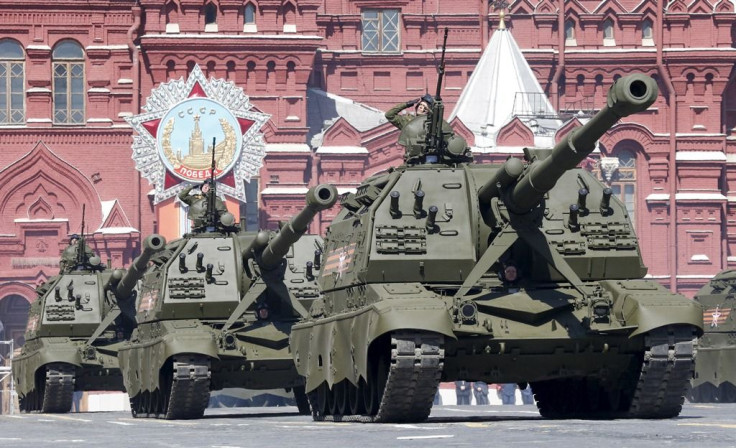West Boycotts Russia’s Victory Day, Joins Poland Ceremony Marking Defeat Of Nazis

It appears as if most Western leaders are boycotting Russia’s Victory Day celebrations. The only Western leader to join Russian President Vladimir Putin is Greek Prime Minister Alexis Tsipras.
Russia on May 9 is celebrating the 70th anniversary of the Soviet Union's defeat of Nazi Germany in World War II. In Russia, World War II is known as the Great Patriotic War.
While Western leaders seem to be deliberately avoiding the ceremony, leaders such as China's President Xi Jinping are expected to take part. Representatives from Turkmenistan and Uzbekistan also are expected to join Putin in Moscow. North Korea recently said that leader Kim Jong Un would be sending a representative. German Chancellor Angela Merkel reportedly will visit Moscow after Victory Day. She is believed to be planning to lay a wreath at Russia's Tomb of the Unknown Soldier.
In April, Putin blamed the United Nations for the seeming lack of interest by prominent Western leaders. Several other Russian leaders -- such as Vladimir Chizhov, the country's ambassador to the European Union -- have not taken the boycott well. He said the snub was an insult to the Soviet soldiers who were killed while fighting Nazi Germany. (Some may have forgotten that the Soviet Union was an ally of the United States and Britain during the war.)
Fyodor Lukyanov, chairman of Russia's Council on Foreign and Defense Policy, said the apparent boycott had confirmed that Russia and the West had “irrevocably” gone their separate ways. He said that China’s presence at the ceremony would be “highly illustrative of Russia's new direction.”
Major European leaders, meanwhile, attended a midnight ceremony at Westerplatte in the Polish port of Gdansk, where the first shots of World War II were fired. The office of Poland's President Bronislaw Komorowski confirmed that representatives of Ukraine, Romania, Lithuania, Estonia, Bulgaria and the Czech Republic had attended the Gdansk event. France, Britain, Germany and the United States also planned ceremonies to mark the occasion.
Ukrainian President Petro Poroshenko said there were similarities between the present political situation in Europe and past events. “Annexation and invasion, under the pretext of defending ethnic minorities, the temptation of turning a blind eye, the corrosion of the European solidarity,” he said. “This could all become the new reality, depending on the choice of Europe.”
Contact the writer: s.mukhopadhyay@ibtimes.com.au
© Copyright IBTimes 2024. All rights reserved.





















